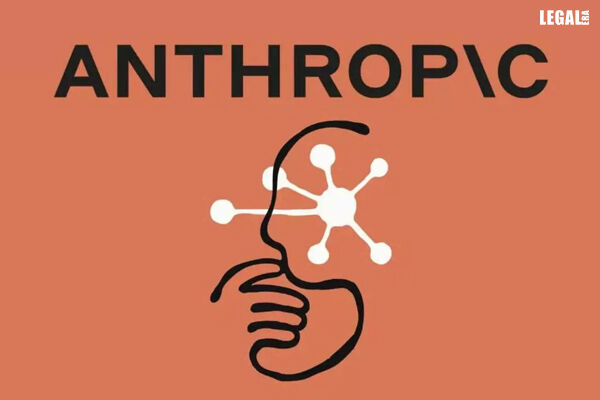
AI Company Anthropic Under Fire for Alleged Copyright Violations in Music
Court Rules in Favor of Music Publishers in Anthropic Copyright Lawsuit
Anthropic, the AI company backed by Amazon and Google, lost its bid to dismiss portions of a copyright infringement lawsuit filed by major music publishers. The case, which centres on the alleged unauthorized use of song lyrics in the company’s AI training processes, highlights a growing legal conflict between copyright holders and AI technology developers. Here’s an in-depth analysis of the case and its potential impact on the future of AI and copyright law.
The Lawsuit: Allegations Against Anthropic
The lawsuit, filed in 2023 by Universal Music Group, Concord, and ABKCO, accuses Anthropic of enabling its AI-powered chatbot, Claude, to reproduce song lyrics without the necessary permissions. These publishers claim that Anthropic’s platform facilitates copyright infringement by allowing users to interact with AI in ways that reproduce protected lyrics from songs by iconic artists such as Beyoncé, the Rolling Stones, and the Beach Boys.
This legal dispute is not an isolated incident but part of a broader wave of lawsuits against leading tech companies, including OpenAI, Microsoft, and Meta Platforms. Music publishers and other content creators are pushing back against the alleged use of their intellectual property in training AI models.
The Judge’s Ruling: Implications for Anthropic
U.S. District Judge Eumi Lee ruled that the music publishers could continue pursuing their claims against Anthropic. The ruling is significant because it allows the plaintiffs to move forward with allegations that Anthropic facilitated copyright infringement by hosting and displaying song lyrics through its AI chatbot.
Judge Lee’s decision specifically addressed whether Anthropic could be held liable for contributory or vicarious infringement—meaning that the company may have indirectly encouraged or profited from users alleged illegal use of copyrighted materials.
Key Points of the Lawsuit
The core issue at the heart of the lawsuit revolves around whether Anthropic, through its chatbot Claude, should be held accountable for users’ potential copyright violations. The music publishers argue that:
Direct Use of Lyrics: Anthropic’s AI was used by individuals to access and reproduce lyrics without proper authorization.
Infringement Facilitation: Anthropic allegedly played a role in facilitating the reproduction of copyrighted lyrics, contributing to the infringement.
Vicarious Infringement: The publishers claim that Anthropic profited from this unauthorized use by allowing it to occur on its platform.
The case has captured significant attention as it explores the intersection of copyright law and the rapidly advancing capabilities of AI systems.
The Larger AI and Copyright Debate: Fair Use vs. Infringement
This lawsuit is not the first of its kind, as tech companies, particularly those in the AI industry, are facing growing scrutiny over their use of copyrighted materials. One of the central debates is whether AI models, like Anthropic’s Claude, should be allowed to train on copyrighted works under the doctrine of “fair use.”
Fair use allows for limited use of copyrighted materials without permission, under certain conditions. However, the question remains whether AI systems that ingest vast quantities of copyrighted works for training purposes can be considered to be making “transformative” use of the material, which could fall under fair use.
The Broader Impact on the Tech Industry
Anthropic’s legal challenges are not isolated; other major AI players like OpenAI and Meta are also grappling with similar issues regarding the use of copyrighted content to train their AI models. In August, Anthropic settled a different lawsuit, agreeing to pay $1.5 billion to a group of authors who had accused the company of misusing their written works in training its models.
As the lawsuit with the music publishers progresses, the tech industry will likely be watching closely, as the outcome could set important precedents for how AI companies use copyrighted material and whether they will be held accountable for its unauthorized use.
The Future of Copyright Law and AI Development
The lawsuit against Anthropic raises crucial questions about how copyright law should adapt to the age of artificial intelligence. As AI systems become increasingly sophisticated, the line between “fair use” and infringement becomes harder to define. The resolution of this case, along with other pending legal battles, could reshape the future of both AI technology and intellectual property law.
A Crucial Moment for AI and Copyright Law
The ongoing legal dispute between Anthropic and music publishers underscores the complex relationship between copyright law and the growing field of artificial intelligence. While the music industry fights to protect its intellectual property, tech companies must navigate the delicate balance between innovation and respect for copyright protections.
As the case progresses, both sides will likely continue to push their arguments in court, with potential ramifications that could extend far beyond this particular lawsuit. For now, all eyes will remain on the courtroom as the legal landscape for AI and copyright law evolves.